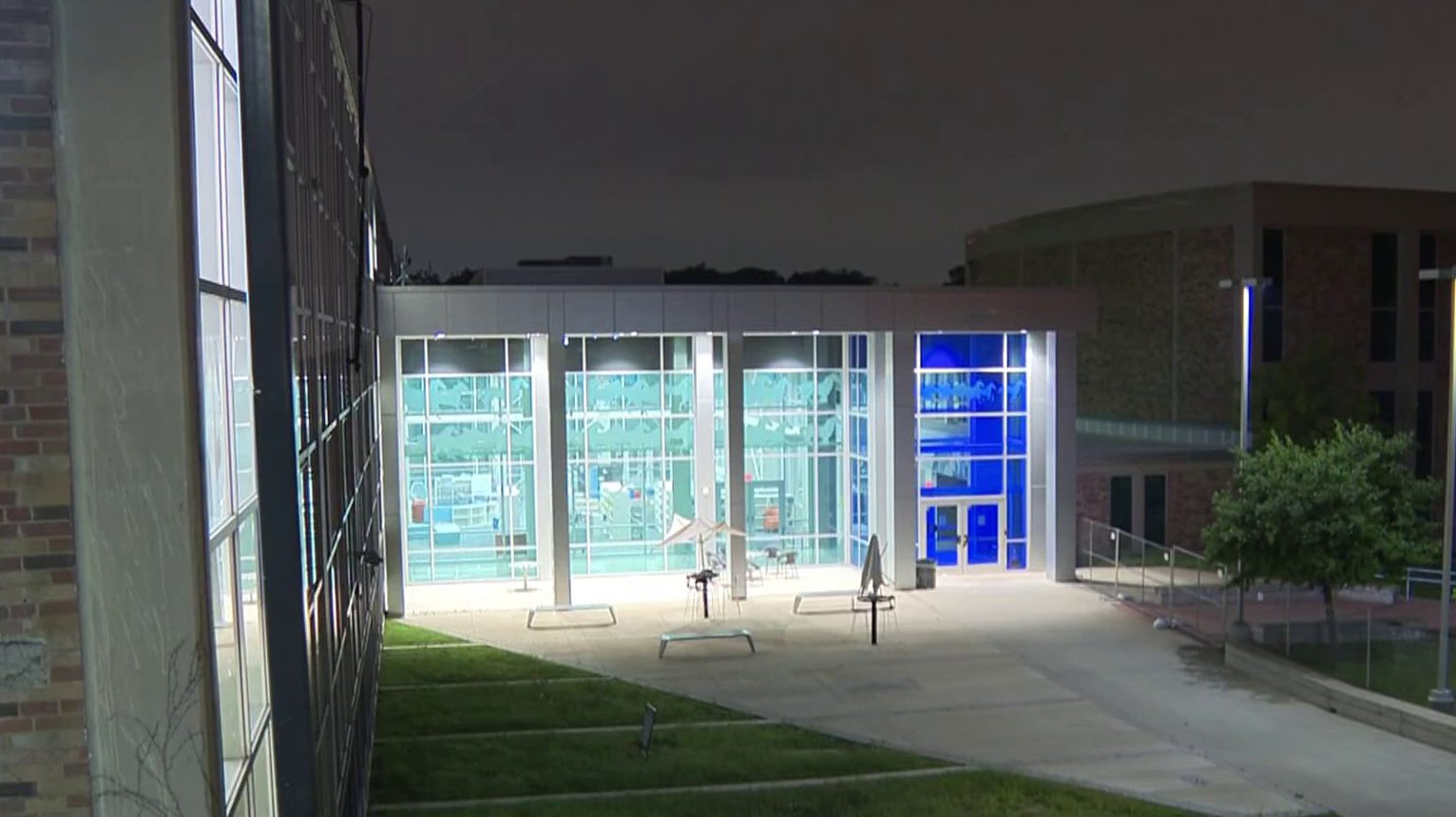The sun is going down and cars are trickling into the driveway of the Van Zandt County Library. The library closed its doors 15 minutes ago, but the Wi-Fi connection is still on.
The Tyler Morning Telegraph reports in a white sedan, a woman has parked and unbuckled her seatbelt. She sits cross-legged in the driver's seat leaning over her laptop that's perched on the center console. The screen glows through the tinted windows.
Five parking spots away, a man pulls up in a pickup truck. He's wearing a postal service uniform as if he has just gotten done with work. He browses on his phone in silence and drives out of the parking lot after 15 minutes.
Carol Moser, 72, of Canton, is parked crooked across a few spots in her sport utility vehicle. She scrolls on the screen of her smartphone. She said she comes to the library often for the Wi-Fi, which she doesn't have at home.
"I don't know what the actual problem is, and I don't know what the solution is," Moser said. She said she has considered paying a company to put up a tower in her backyard to get internet, "but I'm not even sure if they will do it."
Across East Texas, small-town librarians say this is a common scene in their parking lots at night, as residents without broadband connections at home come to do work, access their email on their phone and browse social media.
And it's completely intentional: Librarians each say they have made a point of getting the highest-quality internet for their facilities as possible because the residents of their communities don't have access at their homes.
Local
The latest news from around North Texas.
Many libraries have received funding for the service through local governments or negotiated discounted monthly fees through local internet service providers. Others have made bartering deals or applied for state grants.
"Our motto is open access to all," Van Zandt County Library director Susie Pulley said. "Free internet is not offered in our county other than (places like restaurants). Internet in rural communities is limited at best and very expensive."
The download speed at the Van Zandt County Library is up to 50 megabits per second, according to Pulley. That's twice as fast as the Federal Communications Commission definition for minimum broadband speed.
More than 500 people per month use the Wi-Fi connection, Pulley said. On the weekends, when the library is not open, an average of 10 people per day use the connection. The service is funded through the county government.
"Even our sheriff's deputies and city cops use our internet when we are closed to file reports (and other documents) because they cannot have their internet come out of the building for safety reasons," Pulley said.
In Gilmer, the Upshur County Library has seen about 4,000 people per year over the past three years seeking computer services, according to Cynthia King, the county librarian. About a quarter of those people solely go to the library for the broadband connection.
King said she often sees people in the parking lot when she gets to work around 8 a.m. when the library first opens. She said people time it that way because they know there are some staff members who start their shifts at 7 a.m. and turn on the Wi-Fi when they get there.
In Emory, the Rains County Public Library paid to have cables that were run to a nearby hardware store extended down the street to the library, according to library director Wendy Byrd. Between 300 and 400 people per month use the Wi-Fi connection.
Byrd said it's so common to see cars parked in the lot outside at night that law enforcement officers have asked her whether they should start questioning them. She said she told them that wasn't necessary because most of them are on Facebook, downloading or uploading.
Nonetheless, the speed available at each library varies by community and by the arrangements they are able to make with their internet service providers. In Wood County, two libraries less than 10 miles from each other have differences in speed that are more than tenfold.
"It's partly that they're at the mercy of what is available in terms of high-speed in their areas, so we've got some places in the state where the telecom (companies) aren't offering the speeds that are high enough for them," said Mark Smith, the director of the Texas State Library and Archives Commission.
At the Mineola Memorial Library, a speed test done when no one was on the computers showed that the Wi-Fi speed was 8.6 megabits per second downloading and 1 megabit per second uploading, about one-third of the Federal Communications Commission's minimum standard for broadband.
Mary Hurley, the library director, said that's a good speed, when everything is taken into consideration. The service comes from a local provider who offers it at a discounted rate as a community service. As many as 50 people per day use the connection, she said.
About 9 miles to the north, Delene Allen, the library director at the Quitman Public Library, offers speeds as high as 100 megabits per second downloading. She said she was able to increase the speed when she decided 25 megabits per second wasn't good enough.
Allen said she got the 25 megabit speed through a bartering arrangement, where she let the company put up signs in the library advertising that the service was offered through that company. That helped the company get new subscribers.
To upgrade the speed, she went through the library commission to apply for a competitive federal grant that gives substantial discounts to libraries like hers.
"I try to keep up with the big libraries, the big technology, and not punish people for living in rural communities," Allen said.



